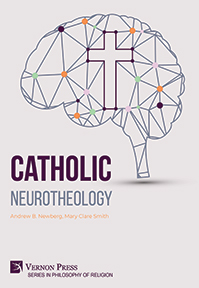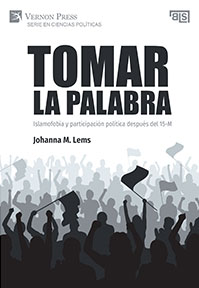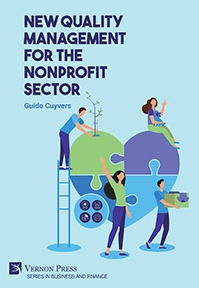Search
Browse
by Publication status
by Subject
Anthropology (26) Art (124) Business and Finance (26) Cognitive Science and Psychology (54) Communication and Journalism (45) Economics (62) Education (66) History (149) Human Geography (22) Interdisciplinary (42) Language and Linguistics (129) Law (16) Music Studies (18) Philosophy (157) Political Science and International Relations (103) Sociology (304) Statistics and Quantitative Methods (20)by Series
Series in Literary Studies (65) Series in Philosophy (59) Series in Education (51) Series in Sociology (42) Series in Politics (32) Series in World History (32) Bridging Languages and Scholarship (31) Series in Language and Linguistics (25) Cognitive Science and Psychology (20) Series in American History (20) Series in Philosophy of Religion (20) Series in Art (19) Critical Perspectives on Social Science (16) Series in Cinema and Culture (16) Curating and Interpreting Culture (15) Series in Critical Media Studies (14) Series on the History of Art (14) Series in Anthropology (13) Series in Business and Finance (13) Economics (13) Series in Music (12) Series in Communication (9) Series in Performing Arts (9) Philosophy of Personalism (8) Series in Law (8) Series in Economic Methodology (7) Series on Climate Change and Society (7) Women's Studies (7) Classics in Economics (6) Series in Economic Development (6) Philosophy of Forgiveness (5) Series in Built Environment (5) Series in Economic History (5) Series in Philosophy of Science (4) Series in Social Equality and Justice (4) Series on the History of Science (4) Serie En Estudios Literarios (3) Serie en Sociología (3) Series in Contemporary History (3) Series in Creative Writing Studies (3) Series in Design (3) The Interdisciplinary Built Environment (3) Serie en Comunicación y Medios (2) Serie en Historia (2) Series in Heritage Studies (2) Series in Innovation Studies (2) Series in Philosophy of Race (2) Serie en Ciencias Políticas (1) Serie en Entorno Construido (1) Serie en Estudios Culturales (1) Serie en Filosofía (1) Serie en Filosofía de la Ciencia (1) Serie en Música (1) Series in Classical Studies (1) Series in Economics of Technological Change (1) Series in Urban Studies (1)by Language
English Spanishby Author
Browsing with filters

Magical Feminism in the Americas: Resisting Female Marginalisation and Oppression through Magic
Abu Shahid Abdullah, East West University
Availability: Forthcoming
$63 £50 €59
The book aims to show the way magical feminism resists female marginalisation and oppression in the Americas. Dealing with multiple victimisation of women in the Americas who have suffered not only because of their gender but also their race, ethnicity, political ideology, social status, financial insecurity and such, magical feminism provides a voice to them so that they can speak about their marginalisation and victimisation. In other words, by using magical feminism, these female authors attempt to give a voice to the oppressed women, enabling them to resist and challenge the traditional female role and to raise their voices against various social and political issues. The subversive and transgressive power of magical feminism enables the oppressed women to break patriarchal constraints and to reverse the traditional power structure. By creating an imaginary realm through traditions, local beliefs and rituals, myth, magic and the spirits of the dead ancestors as guides, magical feminist technique functions as a survival strategy for women in traumatic and oppressive situations and provides them consolation. The project includes a total of eight novels from African American (Gloria Naylor’s 'Mama Day'), Latin American (Isabel Allende’s 'The House of the Spirits'), Native American (Louise Erdrich’s 'Tracks'), Chicana (Ana Castillo’s 'So Far from God'), North American (Gail Anderson-Dargatz’s 'The Cure for Death by Lightning'), Central American (Gioconda Belli’s 'The Inhabited Woman'), Hawaiian American (Kiana Davenport’s 'Shark Dialogue's) and Cuban American (Cristina García’s 'Dreaming in Cuban') background.
Catholic Neurotheology
Andrew Newberg, Thomas Jefferson University
and Mary Clare Smith, Sisters of Notre Dame
Availability: In stock
400pp. ¦ $86 £69 €81
The topic of “neurotheology” has garnered increasing attention in the academic, religious, scientific, and popular worlds. It is the field of study that explores the intersection between the brain and religious and spiritual phenomena. However, there have been no extensive attempts at exploring specifically how Catholic religious thought and experience may intersect with neurotheology. The purpose of 'Catholic Neurotheology' is to fully engage this groundbreaking area. Topics are related to a neurotheological approach to the foundational Catholic beliefs derived from Scripture and Tradition, an exploration of the various elements of Catholicism and of Catholic rituals and practices, and a review of Catholic spiritualities and mysticism. Specific Catholic scholars are considered in terms of the relationships among their ideas/teachings and different brain processes. 'Catholic Neurotheology' engages these topics in an easy-to-read style and incorporates scientific, religious, philosophical, and theological aspects of the emerging field of neurotheology. By reviewing the concepts in a stepwise, simple, yet thorough discussion, readers regardless of their background will be able to understand the complexities and breadth of neurotheology from a Catholic perspective. More broadly, issues include a review of the neurosciences and neuroscientific techniques; religious and spiritual experiences; theological development and analysis; liturgy and ritual; philosophy, epistemology, and ethics; and social implications, all from a Catholic perspective.
Narrative Medicine: Trauma and Ethics
Edited by
Anders Juhl Rasmussen, University of Copenhagen, Denmark
and Morten Sodemann, University Hospital Odense and University of Southern Denmark, Denmark
Availability: In stock
306pp. ¦ $109 £87 €102
This new volume repositions narrative medicine and trauma studies in a global context with a particular focus on ethics. Trauma is a rapidly growing field of especially literary and cultural studies, and the ways in which trauma has asserted its relevance across disciplines, which intersect with narrative medicine, and how it has come to widen the scope of narrative research and medical practice constitute the principal concerns of this volume. This collection brings together contributions from established and emerging scholars coming from a wide range of academic fields within the faculty of humanities that include literary and media studies, psychology, philosophy, history, anthropology as well as medical education and health care studies. This crossing of disciplines is also represented by the collaboration between the two editors. Most of the authors in the volume use narrative medicine to refer to the methodology pioneered by Rita Charon and her colleagues at Columbia University, but in some chapters, the authors use it to refer to other methodologies and pedagogies utilizing that descriptor. Trauma is today understood both in the restricted sense in which it is used in the mental health field and in its more widespread, popular usage in literature. This collection aspires to prolong, deepen, and advance the field of narrative medicine in two important aspects: by bringing together both the cultural and the clinical side of trauma and by opening the investigation to a truly global horizon.
Tomar la palabra. Islamofobia y participación política después del 15-M
Johanna M. Lems, Universidad Complutense de Madrid, Spain
Availability: Available 4 weeks
154pp. ¦ $54 £44 €51
'Tomar la palabra' es un análisis basado en la búsqueda de justicia social por medio de la participación sociopolítica, que aborda con cuidado muchos de los temas que determinan y contribuyen a reproducir las situaciones de subalternidad y subordinación a las que se ven sometidas las personas musulmanas en España. Desde un posicionamiento novedoso sobre el islam en el contexto español, al abordar su estudio desde la existencia de musulmanidades diversas, contribuye al avance de los estudios sobre la realidad social y política de las poblaciones musulmanas en nuestro país. El principal objetivo de la autora ha sido identificar los procesos mediante los que las personas musulmanas – o aquellas leídas como tales– tratan de ganar voz y reclamar los derechos que les son negados sistemáticamente. Todo ello con el fin de contribuir a una comprensión más crítica y menos estigmatizadora sobre el islam y las personas musulmanas que viven en España. Se trata de un trabajo interdisciplinario que parte de una investigación etnográfica llevada a cabo entre 2017 y 2020 en distintas partes del territorio estatal. Puede resultar de gran interés como monografía para profesores y estudiantes de cursos de grado y posgrado en disciplinas como sociología, antropología, ciencias políticas, ciencias de las religiones. Igualmente, será de utilidad como obra de consulta en estudios de subalternidad, feministas y de migraciones o para trabajadores sociales, líderes y comunidades religiosas, instituciones gubernamentales y aquellas personas u organizaciones centradas en los derechos humanos, el diálogo interreligioso o las que, en general, quieren estar informadas sobre el escenario político contemporáneo español.
New quality management for the nonprofit sector
Guido Cuyvers, Thomas More University College, Belgium
Availability: In stock
280pp. ¦ $76 £60 €71
For a long time, quality has been the center of attention in the nonprofit sector, influenced by all kinds of developments in society. Due to, among other things, the interference of the government and the increasing competition, all divisions in the nonprofit sector are obliged to work systematically with their quality. Quality has become necessary. However, as more people gain experience with quality assessments, visitations, and accreditations, so does the criticism. This has to do with how quality is assessed and with the criteria that are used. We will examine this critically in this book. Many questions remain unanswered, and contradictions have not been resolved. Moreover, it is no easy task to have all noses pointing in the same direction. In short, there is still work to be done. This book broadens the traditional vision of quality and quality assurance to a vision and approach that is compatible with the support of the organization’s missions in the nonprofit sector. Incidentally, we will speak of quality development rather than quality assurance. The use of the term ‘quality development’ hopes to inspire people to look differently at quality and how their organization deals with it. Furthermore, this book provides nonprofit organizations with methodologies and tools that can help in the process of permanent quality development. The pursuit of quality for nonprofit organizations is approached from a development perspective and a broader social context. This distinguishes it from the traditional quality management manuals. It offers a constructive and appreciative approach that is compatible with the specific mission of various nonprofit organizations (such as education, health care, social work, and government). The approach is also integral because everyone in the organization, as well as the external partners, is involved.






